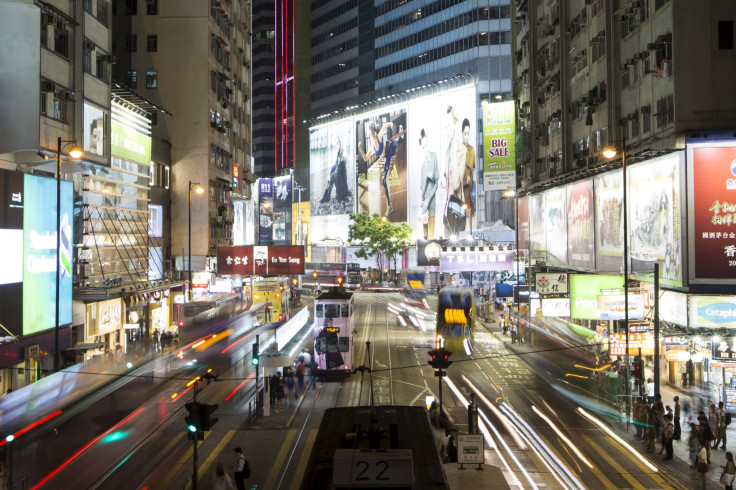Breastfeeding In Hong Kong: Restaurants Designate New Public Nursing, Pumping Spaces For Mothers

Breastfeeding mothers in Hong Kong no longer have to hide themselves in a secluded corner or find a closet to nurse their babies or pump. Instead, they have access to some 60 restaurants across the city that have agreed to make their facilities more welcome to these mothers -- and their babies -- as part of a new push to encourage breastfeeding on the island, the South China Morning Post reported Monday.
The Hong Kong body of United Nations Children's Fund, also known as UNICEF, launched the campaign "Say Yes To Breastfeeding" in August, in collaboration with the Food and Health Bureau and Department of Health. It first focused on garnering more rights and support for women to breastfeed while at work, but it also includes efforts to make numerous other entities and businesses more breastfeeding friendly.
A survey released this year conducted by UNICEF found that in Hong Kong, 84 percent of mothers were breastfeeding their babies when they left the hospitals. Four months later, that number had dropped to 27 percent. The World Health Organization and numerous medical organizations around the globe have endorsed breast milk as the best food for babies, recommending that babies be exclusively breast fed for the first six months of life.
Drinking only breast milk helps protect babies against short-term and chronic diseases at both a young age and later in life, from diarrhea to diabetes, and it also enhances brain development. Breastfeeding is good for mothers, too, reducing their risk of ovarian cancer, among other health benefits. Breastfeeding is also economical, as it is far less expensive than buying baby formula.
But in Hong Kong, even women who want to breastfeed their children, whether by nursing them at the breast or expressing milk through a pump to then bottle feed to a baby, often lack a venue to do so, especially when they're out and about in public. In May, a group of about 50 mothers demonstrated against this de facto restriction by breastfeeding their babies in public on a ferry.
“Breastfeeding in public in Hong Kong attracts weird looks from passers-by, and I feel embarrassed, like I’m doing something wrong,” Yvonne Lam Ho-yi told the South China Morning Post. It's this lack of a place to nurse or pump without attracting the scrutiny of passersby that health officials blame in part for low breastfeeding rates in Hong Kong -- at six months of age, only 2.3 percent of babies in Hong Kong are breastfed, compared to 16.4 percent in the U.S. and 27.9 percent in Taiwan, the Post reported.
As part of the new campaign, restaurants have put stickers that say "Breastfeeding Friendly Premises" on their front doors and set aside specific areas or rooms for breastfeeding mothers.
© Copyright IBTimes 2024. All rights reserved.





















